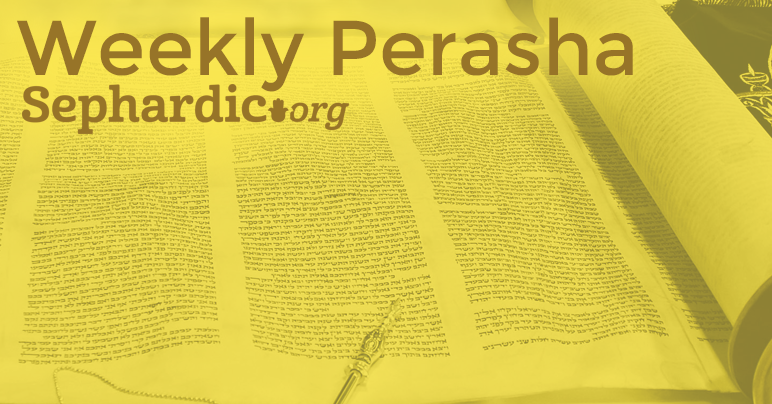
Simha - The Antidote to the Curses
The Talmud (Meg 31) teaches that Ezra HaSofer established that we are to read the portion including the 98 curses of Ki Tavo on a Shabbat prior to ראש השנה - This should be done to end the year and it's curses. I would venture to speculate that a curse is a necessary outcome of non observance of the divine code and the closing of the spiritual spigot of Berakha or blessing flow from above. It must be reopened via the curses.
The covenant of Israel must include an acceptance of its adherents to live by certain rules. We hereby agree that if we do not follow the divine code and receive its blessings - we accept upon ourselves that the Tikun of the world will be effectuated via the curse. This is translated into national suffering - a cessation or limitation of the divine blessing. Non compliance of the law - allows the spiritual vessels to be concealed. We will learn below that via the curses these vessels or Divine Names can once again come forth to reveal the light of the Creator.
Since we prefer the blessing option - Let us avoid the one associated with the curses. There is one blemish that stands at the apex allowing the pathway of curses instead of blessings to take course. The Torah tells us clearly how and why these 98 curses can befall the nation - when it writes - 28:47 - "You have not served God out of happiness and gladness of heart".
Here we have the root of these curses - The course of Israel in its path described in the divine code depends on the שמחה it has when doing misvot. Hence any attempt to avoid the road of these curses must take a course along the pathway of Simha! We hope to demonstrate how our אבות preempted our acceptance of the condition associated with the curses with an infusion of the exclusive healing agent of Simha.
The Simha Associated with the Shelamim as a Precursor to the Curses
It is normally taught that the Torah enumerates two sets of curses - the first consisting of 49 in בחקותי and the second of 98 in כי תבוא - Juxtaposed and preempting the latter set of curses - is the Torah's instructions for the Leviim to pronounce blessings and curses on the designated mountains by the city of Shekhem upon the entrance of the people into the land.
27:4 - As soon as you cross the Yarden set up these stones that I am commanding you today on הר עיבל - ... Build there an alter ... You are to slaughter peace offerings and eat them there and you are to rejoice ושמחת לפני ה׳ - ...On this day you have become a people... The following will stand to bless the people on הר גריזים - The following will stand for the curse on הר עיבל - The Torah precedes to enumerate the 11 particularized curses (and a twelfth which is all encompassing). In preparation for the curses which are to be pronounced on הר עיבל - The Torah prescribes that an altar be built upon it and sacrifices that are to be consumed - All that Israel should rejoice - to be בשמחה - We can take away from here that we as people must accept that the system of curses is a possible recourse that will befall the nation - in cases of our non observance of the Divine Code.
Furthermore - the Torah preempts the pronouncements with a ruling that sacrifices must be offered to infuse the possibility of curses with its cure. The cure is nothing less or more than the Simha associated with these offerings. If we can elevate our service of God and his Divine Code to be one filled with Simha - We can be granted immunity from the wrath of the curses. In conclusion we have two sources that Simha is the antidote to the curses - the first is found within the verses of the 98 curses and the second learned with the requirement that Israel consume the שלמים offerings at הר עיבל prior to the pronouncements upon the mountain.
Lashes and the 98 Curses
R. B. Rosenblum cites the Sefer פרדס יוסף who brings a thought of R. Y. Shapira that the 98 curses have a parallel in the מלקות - or lashes that are administered upon the desecrator of the Divine Will. While man below (Dev 25:3) is subject to 40 - The rebelling Angel is subject to 60 lashes of fire. (See Zohar - Ahare Mot 60 and Talmud BM & YOMA) - He would like us to assume that as the Sages learn that (Mak 22) there are actually 39 (forty less one) So there are actually 59 (sixty less one) spiritual lashes above.
These would total 100 less 2 or 98. This conforms with Rashi citing a Midrash (29:12) describing the number of curses as 100 less 2. (The 2 apparently hidden with the verses 28:61 - Also every illness and every plague that is not written in the book of this Torah). I believe this relationship is apparent in the fact that the purpose of the lashes is to extract from the perpetrators the Divine names which had been concealed as a result of sin.
These names are an essential element in revealing the Divine blessing. Similar to these 98 lashes - exist the curses which when placed upon the nation will extract the concealed Divine names from the shell. This will result in these Divine names to once again act in the form of vessels to receive the blessings from above. The parallel of lashes and curses can be well taken.
The Avot Yishak and Yaakov Remind us of the Simha Requirement
It is apparent that our Avot knew that the nation would have to accept upon themselves the possibility of these curses. It appears that they would be proactive in procuring the cure of Simha! R. B. Rosenblum cites הרב חיד״א who in the name of the רוקח teaches that the name יצחק appears 98 times in the Torah.
The name according to the Targum (Ber 17:17) literally means rejoice - So it appears to me that since we now read the Torah on an annual basis - We arouse the spiritual rejoicing within the name יצחק - ninety eight times to cure the curses - thereby we can say (Meg 31) - תכלה שנה וקללותיה - Via the merit of יצחק and the rejoicing it induces - we read the portion prior to ראש השנה and end the year and its curses. The Rebbe of Spinker asserts that it is יעקב who stands to protect us from the קללות - Rashi to Bem 28:19 asserts that while Avraham and Yishak are associated respectively with פרים ואילים - It is יעקב who is associated to the כבשים - as the verse in Ber 30:40 reads - והכבשים הפריד יעקב - Rashi in Pinhas (29:18) cites a Midrash (Hadasha 11:1) that we bring 98 of these כבשים on סוכות to counter the 98 curses.
The שם משמואל cites his father the אבני נזר who says that this is so - due to the inherent Simha associated with the holiday of Sukkot. As it says specifically here ושמחת בחגך -
What About Abraham
While we have hints as to the participation of Yishak and Yaakov in instilling the cure of Simha to combat the 98 curses - We are forced to inquire as to the role here of Abraham? It appears to me that Abraham had this in mind upon his (initial) visit to the Holy Land. The verse in Beresheet 12:6 reads that Abram traveled through the land as far as the area of Shekhem - coming to the Plain (Tree) of Moreh אלון מורה - The canaanites were then in the land.
God appeared to Abram and said - I will give this land to your offspring - Abram built an altar there to God who had appeared to him. Ibn Ezra and the Ramban translate the tree as a Terebinth (Pistachio/Oak) it could live over 1000 years. It served as a landmark - in the area. This plain or Tree according to the commentators is synonymous or at worst in approximate with הר עיבל - As we see from Dev 11:29 - When God your Lord brings you to the land which you are about to occupy you must declare the blessing in Mount Gerizim and the curse on Mount Eval....They are across the Jordan...near the plains or trees of Moreh - אלוני ממרא -in the territory of the Canaanites. A few points to take note.
Firstly - Abraham appears to have initiated the cure of Simha by building an alter in the location of הר עיבל - We are not told overtly why Abraham did this. There is however a verse here that appears to be totally out of context to the narrative. I would suggest that the Torah offers in code why Abraham was sent here and why he builds an alter. Namely that this will be the place where the curses will be proclaimed unto Israel when it says והכנעני אז בארץ - We know that the כנעני are the descendentes of חם who were specifically cursed by נח who announced ארור כנען - If one would think that this reference of כנען is just happenstance - One should take note that the reference to the cursed ones of כנען is repeated once again in the narrative introducing the mountains of the blessings and the curse - The verse describes them being near the tree of Mamre in the territory of Canaan.
Abraham prepares the area near הר עיבל with the alter associated with Simha - hundreds of years in advance of the curses. The Torah tells us at that point and once again during the instructions to pronounce the blessings and curse - that the כנעני is associated with the land. The reason for the alter is to infuse the area of curses with Simha! It should be noted that the Talmud announces that (sacrificial) meat brought upon the alter - brings Simha for the consumer on the Holiday.
Simha is the Apex
It is an understatement to write that R. Hayyim Vital was enamored by the spiritual heights his teacher R. HaAri - R. Yishak Luria was able to attain. The student asked how his Rabbi reached such lofty levels. He answered that it was attained simply via the Simha in the doing of each Misva. This actually should not be thought of as being so simple. The Rashash - R. Shalom Sharabi explains that the most elevated of five levels in doing misvot - is the Happiness of the heart.
This last level is parallel to the uppermost channel called כתר - If someone can attain a true level of שמחה של מצוה - He has reached the apex in his service of the Creator. We can now appreciate how this type of Simha has the potency to deflect even the curses of כי תבוא - We all know how truly challenging this might be -Our אבות realized that we might need a bit of help.
As we listen in awe and fear to the 98 admonitions in the parasha - maybe we can resolve ourselves to begin to serve Hashem בשמחה We can ponder the name יצחק - the כבשים brought on סוכות or appreciate the alter of Simha built by Abraham upon entering the Holy Land. Though it might not be as the song claims to be a מצוה גדולה להיות בשמחה - All do agree that it is an essential element in our service of the Creator.







